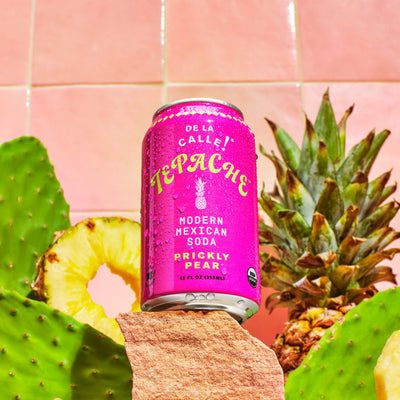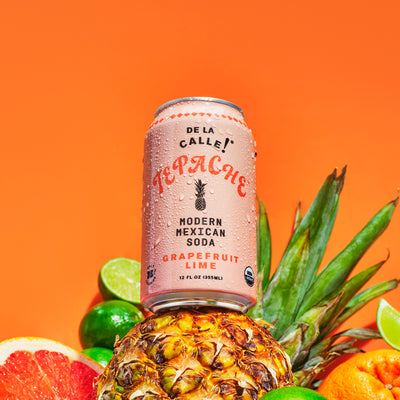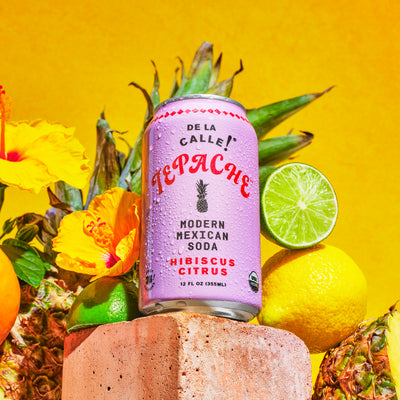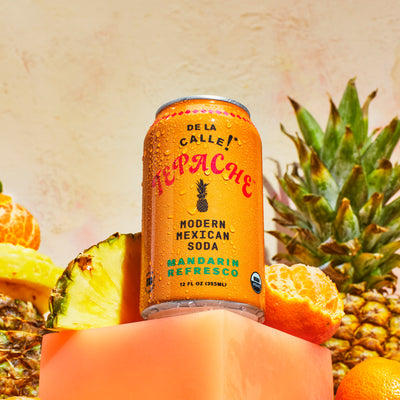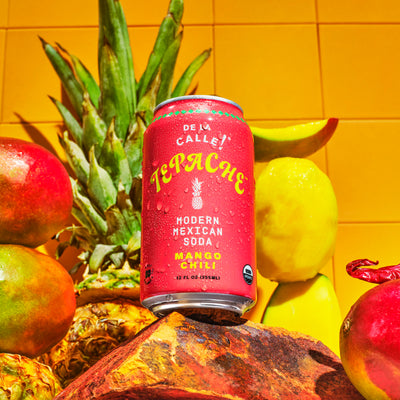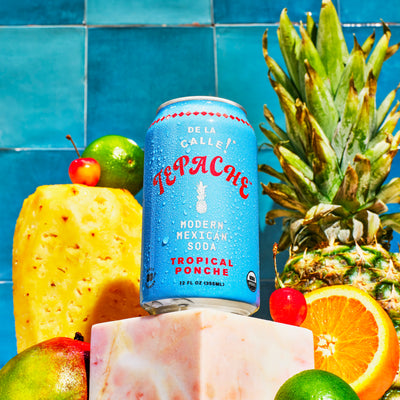Everything You Need to Know About Fermented Foods and Staples to Have On Hand

Even if you didn’t realize it at the time, you’ve likely been eating some type of fermented food for your whole life. Every culture has its own fermented favorites, seeing as fermentation is one of the oldest food preservation methods around. You’ll find fermented vegetables like soybeans and pickles, as well as beverages tepache and kombucha. There really is a huge variety.
This article will tell you everything you need to know about fermentation and all the fermented staples you need to have on hand.
What Is Fermentation?
Fermentation is a naturally occurring process wherein live microorganisms like yeast and bacteria turn carbohydrates into alcohol or acid. Carbohydrates in foods can be any type of starch or sugar. The alcohol and acids in fermented foods and drinks are what give them their distinct tangy and sour taste.
During fermentation of non-alcoholic foods and beverages, the starting ingredients are covered in beneficial bacteria known as lactobacillus. As the foods ferment, they release their juices which creates a brine. In this brine, the bacteria can multiply and begin to break down the ingredient. As the ingredients are broken down, the sugars and starches are covered in lactic acid. This acid is what preserves the food because it stops the growth of bacteria that can cause harm. That’s why fermented foods have such a long shelf life.
Alongside this process, fermentation also promotes the development of beneficial bacteria known as prebiotic and probiotic bacteria. There are hundreds of different species of bacteria that live in your gut and aid your immune system, digestive system, help keep your heart healthy, and benefit your mental health. Probiotics help increase the number of good bacteria in your gut.
Why Are Fermented Foods Good for You?
Although fermentation was originally used to preserve foods, we now know that fermented foods have several impressive health benefits, a few of which are listed below.
Improves Digestion and Gut Health
The probiotic bacteria that is created during fermentation can help improve digestion and ease some of the symptoms of digestive disorders such as IBS. Common symptoms of digestive issues include bloating, gas, constipation, diarrhea, and stomach pain. It is thought that the microbes that are present in fermented foods are a natural way to ease all of these symptoms and promote painless, regular bowel movements.
Boosts Your Immune System
When you are sick with a bacterial infection, the good bacteria in your gut have to work extremely hard to fight off the bad bacteria that is causing the infection. For this reason, it can be helpful to incorporate fermented foods into your diet, especially when you’re sick, because the probiotic bacteria act as reinforcements for the good bacteria.
Additionally, probiotics can help re-establish a healthy bacterial equilibrium in your gut if you are taking antibiotics. Oftentimes, antibiotics end up killing both good and bad bacteria in your gut. So, if you are taking them, it is a good idea to give your gut a boost to counteract the potentially harmful effects of the medication.
Another way fermented foods can help your immune system is through the nutrients that they provide. Usually, fermented foods are rich in vitamin C, iron, and zinc. All of these nutrients aid your immune system and can help you recover quicker from illness.
Facilitates Easy Digestion
Given that starches and sugars are broken down during fermentation, fermented foods are easier for your body to digest because some of the digestive work has already been done. A good example of the way in which fermentation facilitates easy digestion is seen in products with lactose.
When fermented, the lactose in dairy products is covered into two simple sugars, namely glucose and galactose. Given that the lactose is broken down by the bacteria before it enters the body, people with lactose intolerance can usually eat fermented dairy products such as yogurt and kefir.
Increases Nutritional Value
Another health benefit of fermentation is that it can increase the nutritional value of foods. During fermentation, antinutrients are broken down and destroyed. Antinutrients are plant compounds that inhibit the absorption of nutrients. Essentially, antinutrients make it harder for your body to reap the benefits of nutritious foods.
Given that fermentation destroys antinutrients like phytates and lectins, it makes fermented foods such as beans and legumes healthier than their unfermented form.
Fermented Staples to Have On Hand
If you’re anxious to incorporate fermented foods into your diet but don’t know where to start, check out this section for all the fermented staples you ought to have on hand.
Sauerkraut
Sauerkraut is made from fermented cabbage. Although the exact origins of sauerkraut are not known, it is thought to have first been made in China several thousand years ago. As previously mentioned, the process of fermentation makes sauerkraut far more nutritious than raw cabbage.
Oftentimes sauerkraut is used as a side dish or a topping on hot dogs, sausages, and sandwiches. The only thing to be mindful of when incorporating sauerkraut into your diet is that it can be high in sodium.
Kefir
Another great fermented staple to keep on hand for breakfast is kefir. This fermented beverage is made from cow’s milk or goat’s milk. To make kefir, kefir grains are added to milk. Although they are called “grains,” they are actually small colonies of yeast and lactic acid bacteria. Before they are added to the milk, they somewhat resemble cauliflower. After 24 hours of fermentation, the grains are removed from the milk, and it is kefir.
Tepache
If you want a fermented beverage that can be consumed with any meal and serve as a replacement for soda, look no further than tepache. Tepache is a traditional Mexican beverage made from the fermented rinds and cores of pineapples. Usually, tepache is flavored with sugar and cinnamon, giving it a sweet, spicy flavor that is far more subtle than that of other fermented beverages such as tepache.
Miso
Miso is a fermented soybean paste. During fermentation, enzymes break the beans and grains used to make miso down into amino acids, fatty acids, and simple sugars. Originally made in Japan, miso-making is considered an art form in many parts of the world.
It is the perfect ingredient for miso soup, salad dressing recipes, and glazes where you want a rich umami flavor but do not want to use meat. Miso also pairs extremely well with tofu and tempeh, making it a useful ingredient in many vegetarian dishes.
Sourdough Bread
Recently sourdough bread has had a comeback in the health food world. This tasty type of bread is made without yeast, unlike most commercially sold loaves. Instead of yeast, a sourdough starter made from fermented flour and water mixture is responsible for making the loaf rise. The slightly tangy flavor (where the “sour” in sourdough comes from) and the chewy texture of sourdough are a result of the fermentation process used to make the bread.
Kimchi
Kimchi is like the more flavorful, spicy cousin of sauerkraut. Also made from fermented cabbage, kimchi is seasoned with several traditional Korean flavors such as garlic, ginger, and Korean chilies. It makes for a delicious topping on several dishes, including fried rice, tacos, in soups, and as a side dish.
Conclusion
Fermentation is a naturally occurring process that gives food a tangy, sour flavor and several impressive health benefits. Fermented foods are great for both your digestive and immune systems and can even make foods more nutritious.
The best part? Fermented foods such as tepache, sauerkraut, and sourdough bread are often easy to make at home and delicious additions to any meal!
Sources:
Fermented foods can add depth to your diet | Harvard Health Publishing
Discover the Digestive Benefits of Fermented Foods | Tufts Health & Nutrition Letter


